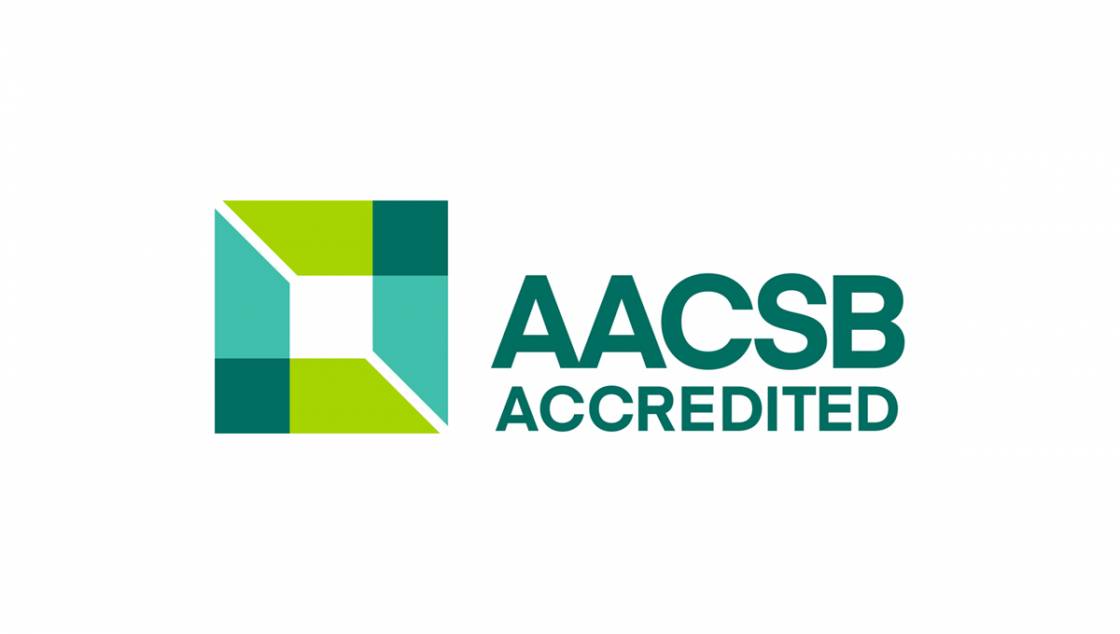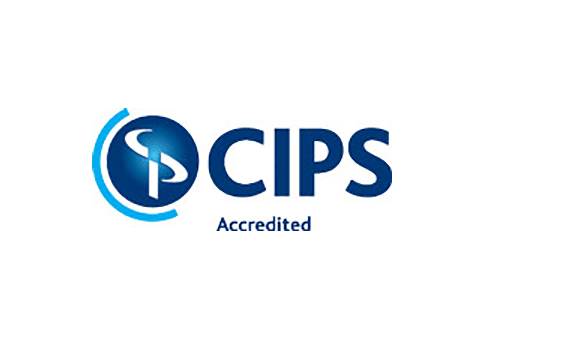Logistics and Supply Chain Management MSc
Why choose this course?
This course is ideal if you wish to pursue a career in procurement, logistics and distribution, or supply chain management. It offers the concepts and principles in business logistics and operations management.
Our course has a unique focus on the key knowledge and skills which will give you a critical insight into contemporary issues such as impact of technology (AI, autonomous logistics, data analytics and block chain), zero carbon logistics, supply chain digital transformation, sustainability, and supply chain resilience.
There are company visits and guest speakers from the industry. There is also the opportunity to take part in a real consultancy project with a client company.
Through your research project and dissertation, you can study a specific issue that matches your career interests.
With full accreditation from the Chartered Institute of Procurement and Supply (CIPS), and a solid syllabus built on concepts and ideas from Kingston University's renowned Operations Research and Management Science Group (ORMS), our logistics masters is a both an academic and a professional qualification.
| Mode | Duration | Attendance | Start date |
|---|---|---|---|
| Full time | 1 year | 4–5 days a week |
September 2024 January 2025 |
| Full time | 2 years including professional placement | 4–5 days a week plus placement year |
September 2024 January 2025 |
| Main Location | Kingston Hill |
Reasons to choose Kingston University
- Completion of this course, combined with three or more years experience in purchasing and supply management, will entitle you to become a member of the CIPS.
- The University pays for the annual subscription cost for the duration of the course (1 year) for the Chartered Institute of Logistics and Transport student membership.
- Kingston Business School is one of only 5% of the world's business schools to be accredited by AACSB International.
- Free car parking at the Kingston Hill campus is available for students of this course. The campus can also be easily accessed by public transport. Halls accommodation is just a walk away from the classrooms.
Kingston Business School Accreditations
Kingston Business School holds the prestigious international accreditation by the AACSB (Association to Advance Collegiate Schools of Business) in recognition of the excellence of its business education. This accreditation has been earned by just 5% of the world's business schools and recognises the high quality and standard of our business degree offerings.
Specialist careers support
You will take part in an Assessment Centre Experience, providing the opportunity to experience the pathway to employment with tailored feedback to help develop your employability skills for the world of graduate employment.
- Develop your understanding of the jobs market, including current trends and opportunities, different recruitment processes and how to identify relevant roles
- Receive personalised feedback reports to help you to improve and progress
- Access additional webinars on top tips, employer expectations and best practice

At Kingston Business School we lead
The Department of Management at Kingston Business School
The Department of Management offers a broad range of accredited undergraduate and postgraduate courses covering all areas of business, from human resources and finance, to marketing, logistics and management.
Our programmes are developed in consultation with industry practitioners and alumni to ensure that your studies are future-facing and enable you to thrive, whether your ambition is to start your own company or become a senior leader in a global organisation.
Accreditation
Chartered Institute of Procurement and Supply (CIPS)
This course has been accredited by the Chartered Institute of Procurement and Supply (CIPS). This means that once you have three or more years' experience in purchasing and supply management, you will become a full member of the Institute and be able to use the letters MCIPS after your name.
Being a member of the Institute will provide you with great opportunities and gives you access to a huge resource relating to supply chain and logistics issues.
What you will study
You will gain the practical skills as well as in-depth knowledge of the theory and practice to make an immediate and effective contribution in a logistics-related role. In addition to developing a solid understanding of global business from a strategic and operational perspective; you will cultivate a critical understanding of the external influences (e.g. political, economic, environmental, technical) which influence the roles of, and interrelationships between, supply chain partners and other stakeholders.
This course is delivered on a full-time basis over one year. You will be expected to attend scheduled sessions throughout the day (although not necessarily all day) between Monday and Friday.
In the first semester, you will develop a broad understanding of management concepts, theories and ideas, such as how to manage organisations and supply chains. This provides you with a solid foundation from both strategic and operational perspectives.
In the second semester and dissertation, you will put this knowledge to use through practical application to real situations. One example is through company visits, which students often arrange for themselves. These opportunities to engage with real supply chain managers build your confidence and ability to question established practice.
You will be encouraged to conduct your research project and dissertation on a specific issue that matches your career interests and put theory into practice.
Year 1
Year 2 (optional)
Core modules
Fundamentals of Business Management
30 credits
This module will provide you with an understanding of the main areas of business: marketing, finance, human resource management, operations management, information and IT management. It introduces you to the fundamentals of business theory and practice in a diverse and evolving international context to enable you to:
- understand markets;
- develop and implement functional strategies;
- build and lead diverse teams;
- prepare and analyse financial statements (profit and loss, balance sheet);
- use the marketing mix and develop effective marketing plans;
- identify and use IT and IS systems to drive strategy; and
- use basic statistical tools and analyses
Logistics Management
30 credits
This module focuses on local, national and international logistics. You will study:
- introduction to logistics management;
- procurement and logistics service providers;
- warehousing management and materials handling;
- inventory management;
- transport systems and management;
- contemporary issues in logistics;
- customer service;
- global business environment in relation to international logistics;
- international marketing;
- international logistics supply chain;
- location decisions;
- risk management in international logistics;
- global transport systems;
- international shipping;
- port management;
- carrier selection and intermediaries;
- terms of sales, payment, trade documentation and insurance; and
- outsourcing and global sourcing.
Operations and Supply Chain Management
30 credits
The operations management element consists of:
- contextualising operations management;
- the delivery process and service design;
- managing capacity by effective design of processes, effective deployment of labour, materials and resources, and by managing demand;
- supply chain management: maintaining a competitive operations strategy by the managing materials and information effectively throughout the various elements of the supply chain;
- using technology in operations management;
- approaches to quality management and performance improvement; and
- operations strategy: the relationship between broader strategic decision making and detailed operational implementation.
The supply chain management element consists of:
- fundamentals of supply chain management, including issues relating to power, transparency and buyer:supplier relationships;
- supply chain management issues on a national, international and global level;
- effective supply chain management as a source of competitive advantage; and
- different approaches to managing supply chains.
You will undertake a company visit and conduct live research and consultancy with real companies. Each student explores one company's supply chain, even visiting the suppliers where products are produced. You analyse the whole process, identify problems and come up with solutions. Then you present your recommendations to the organisation and to your lecturer.
Strategic Operations and Outsourcing
30 credits
This module focuses on strategic aspects of operations management and outsourcing issues on a global/international level. It covers:
- introduction to Strategic Operations and Outsourcing;
- understanding the different levels of strategy within an organisation;
- developing and implementing an operations and outsourcing strategy;
- developing a resource-based or market-led operations strategy;
- aligning operations to support and/or drive markets;
- examining the alternative drivers, strategies and methods of outsourcing; and
- understanding the practical aspects of outsourcing: legal, procurement, technology, managing suppliers and contemporary trends.
Supply Chain Research Proposal and Dissertation
60 credits
During this module, you will develop the skills and knowledge necessary to complete a research project successfully. You will investigate a specific business problem via a substantial piece of independent work, and demonstrate your proficiency in:
- designing a research project;
- applying appropriate methods;
- collecting and analysing data; and
- presenting results.
The professional placement year is optional. It takes place after the full time year. It allows students to do a 12-month work placement as part of their course. The work placement is an assessed part of the course and is therefore covered by a Student Route visa.
Find out more about the postgraduate work placement scheme.
Core module
Professional Placement
120 credits
The Professional Placement module is a core module for those students following a masters programme that incorporates an extended professional placement that follows completion of the first 180 credits of taught modules and project or dissertation. It provides students with the opportunity to apply their knowledge and skills in an appropriate working environment, and to develop and enhance key employability skills and subject specific skills in their chosen subject.
It is the responsibility of individual students to locate and secure a suitable placement opportunity; this will normally involve one placement which must be completed over a minimum period of 10 months and within a maximum of 12 months. The placement must be approved by the module leader prior to commencement to ensure its suitability.
Entry requirements
Teaching and assessment
Who teaches this course?
Fees for this course
Additional costs
Depending on the programme of study, there may be extra costs that are not covered by tuition fees which students will need to consider when planning their studies. Tuition fees cover the cost of your teaching, assessment and operating University facilities such as the library, access to shared IT equipment and other support services. Accommodation and living costs are not included in our fees.
Where a course has additional expenses, we make every effort to highlight them. These may include optional field trips, materials (e.g. art, design, engineering), security checks such as DBS, uniforms, specialist clothing or professional memberships.
After you graduate
As a Logistics and Supply Chain Management graduates you'll have a huge spectrum of companies and positions to work in, for example providing third party logistics, aerospace and electrical/electronic products and technology-based firms.
Some recent LSCM graduates are currently working in the following roles and companies:
- International Project Manager at International Brand Investment Corporation (IBIC)
- Supply Chain Analyst at Thames Tideway Tunnel
- Logistics Coordinator at World Food Programme (UN)
- Supply Demand Manager at BSH Northern Europe
- Procurement Consultant (IT) for University of Arts London
- Head of Operations at Candy Kittens
- Supply Chain Manager at GlaxoSmithKline
Kingston Business School: who do you want to be?
Course changes and regulations
The information on this page reflects the currently intended course structure and module details. To improve your student experience and the quality of your degree, we may review and change the material information of this course. Course changes explained.
Programme Specifications for the course are published ahead of each academic year.
Regulations governing this course can be found on our website.









